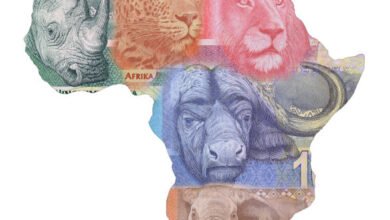Argentina seeks IMF aid to boost FX reserves


Argentina is seeking $15 billion from the International Monetary Fund and other lenders to speed up the lifting of currency controls, a key for reviving economic growth and cutting triple-digit inflation, President Javier Milei.
Milei spoke on Friday hours after the Senate voted against a presidential decree introducing major fiscal reforms.
“The possibility of renegotiating the agreement with the International Monetary Fund is on the table, and if so, there will be new disbursements of money,” the right-wing libertarian said on Radio La Red.
The IMF could provide a portion of this $15 billion, while the rest could come from other sources, such as multilateral lenders, foreign governments and private investment funds, he added.
Argentina can’t readily borrow funds on the global capital markets because of its poor creditworthiness following a string of defaults, including most recently on more than $100 billion of debt in 2019-2020.
Sebastián Maril, CEO of financial research and advisory firm Latam Advisors, said that to improve Argentina’s reputation with investors, Milei faces two big challenges in the near term: lifting currency controls and curbing inflation.
The president, who took office in December, has already had some success in reducing inflation. While it reached 276% annual in February, the highest in the world, on a month-on-month basis it fell to 13.2% from 20.6% in January. If the declining trend continues over the next few months, it will bring cheer to investors, Maril told LatinFinance.
CURRENCY CONTROLS
The second challenge is to remove the tight controls on buying foreign currency that have discouraged investment and fueled corporate defaults and restructurings. The controls, which limit how much foreign currency a person or company can buy, are designed to protect international reserves, which reached dangerously low levels last year.
The controls, however, have slowed investment in the real economy as companies don’t know when they can take money out of the country for paying debts or dividends, or for investing elsewhere.
Milei, an economist, appears to understand this. He said that if the $15 billion materializes, it will be deposited in the central bank to bolster international reserves, adding that his goal is to lift the currency controls by the middle of this year as long as reserves grow.
Foreign currency reserves have been recovering in recent months. They sat at $28.5 billion on Thursday, up from a low of $20.9 billion in early December. But they are still shy of the most recent high of $77.5 billion in April 2019, according to central bank data.
POLITICAL CHALLENGES
Milei also faces political challenges. On Thursday, the Senate voted against a presidential decree he issued shortly after taking office with measures designed to replace last year’s primary fiscal deficit with a 2% surplus at the end of this year.
The president has said that the country’s perennial fiscal deficit is the root cause of its recurring financial crises over the past century.
Argentina’s government has traditionally spent more than it collects in revenue and financed the difference by printing pesos, a practice that over the past few years has left the country shackled with high inflation, slow economic growth, a weak currency and a rising national debt, Milei has said.
The measures he proposed are designed to cut government spending, including by laying off state workers, suspending state advertising and some public works, limiting tax transfers to the provinces and lifting import restrictions. Energy and transport subsidies will be removed, and social programs will only be kept in place for those who need them, according to the decree.
Latam Advisors’ Maril said that it was expected the upper house would reject the decree. The concern now is whether Milei will get it through the lower house and win support for his government’s omnibus bill — a large package of structural reforms — in both houses.
If the decree is approved in the lower house, it will remain in effect. But investors are worried that the decree’s rejection in the upper house puts the omnibus bill at risk.
“This kind of political uncertainty about the future is what is causing a lot of noise,” he said. “The markets don’t like noise.”
If Milei is able to lift the currency controls, it would help bolster confidence of investors in Argentina’s bonds and the real economy.
“The currency controls impede dollars from coming into the country because nobody wants to invest in a country where they can’t repatriate their profits to their parent company abroad,” Maril said. “Investors look for markets that are efficient and free. So it is a very good sign that Milei wants to lift these controls.”
Source link





